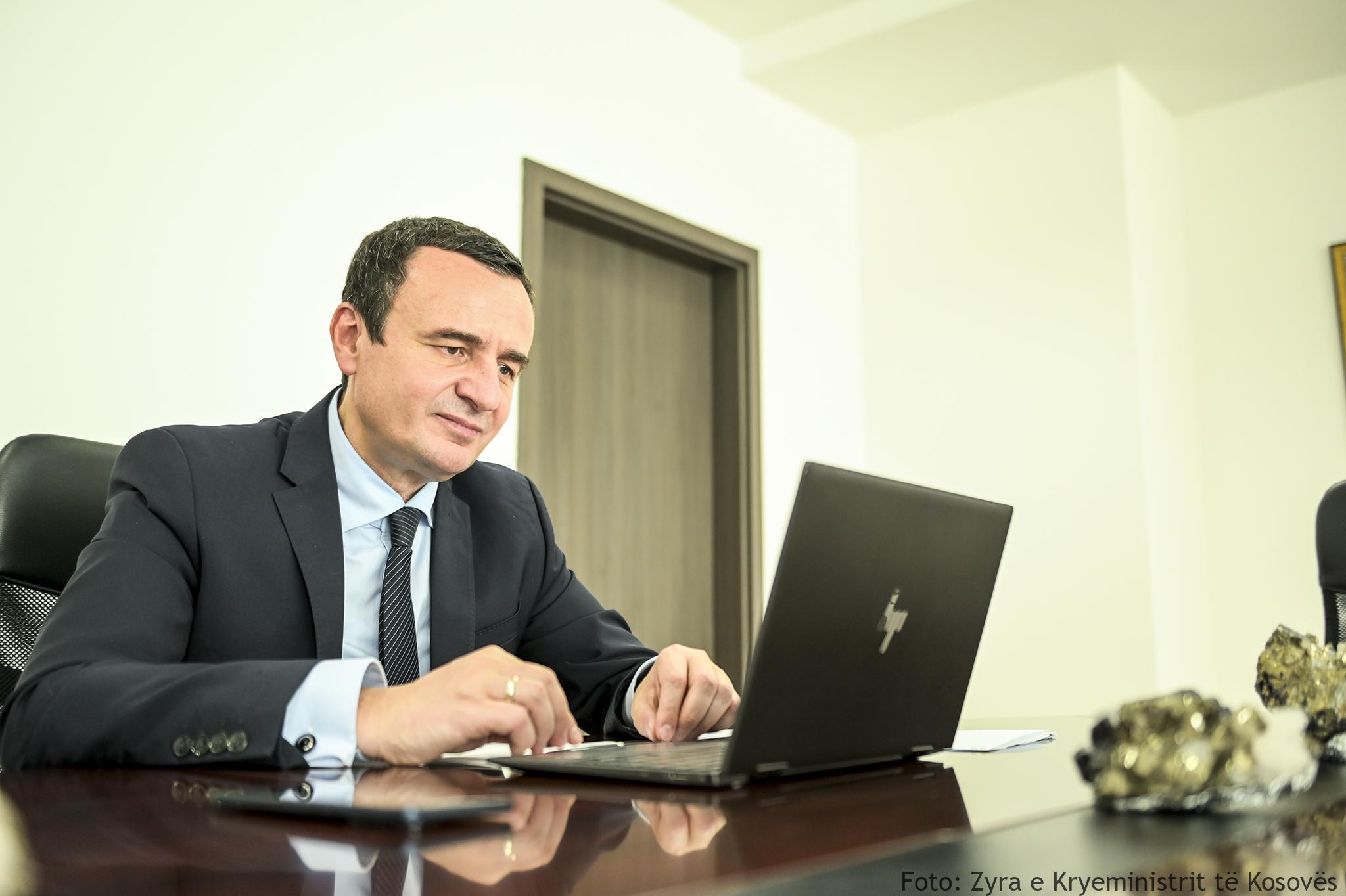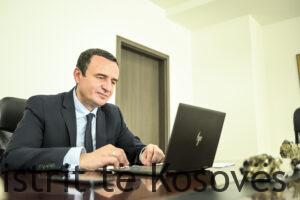Below you may find the full Financial Times article from the August 7 interview with Prime Minister Kurti:
Kosovo seeks western help to boost NATO and EU ambitions
Prime Minister Albin Kurti urges allies to convince reluctant counterparts to recognise independence
Kosovo has urged western powers to help it achieve its ambition to join the EU and NATO by convincing reluctant governments to recognize the country’s independence and pressing Serbia to resolve decades-long tensions over its statehood.
Kosovo unilaterally declared independence from Serbia in 2008. Since then, more than 100 nations, including the US and most EU members, have recognized the country as an independent state. But several EU and NATO nations — Spain, Greece, Cyprus, Slovakia and Romania — have yet to do so.
“We need the help of our allies and partners — the UK, the US, Germany, France, Italy and others — to help us with non-recognizers,” Kosovo Prime Minister Albin Kurti told the Financial Times, speaking ahead of a summit with Serbian president Aleksandar Vučić in Brussels scheduled for this week.
Belgrade continues to view Kosovo, whose population is about 90 per cent ethnic Albanian and less than 10 per cent Serb, as a province of Serbia. It says Kosovo’s declaration of independence violated a peace agreement made at the end of the Yugoslav wars of the 1990s, in which NATO intervened, bombing Belgrade in 1999. Tension between the countries regularly threatens to undermine stability in the Balkans.
Seemingly mundane issues have led to violent flare-ups, most recently last month, when Serbs clashed with police after Prishtina said Serbian licence plates would no longer be legal for Kosovo citizens, including ethnic Serbs. Individuals entering Kosovo from Serbia were also required to use temporary IDs issued by Prishtina.
Kurti has argued that the clashes bore the hallmarks of the Serbian government. Belgrade has denied involvement.
The EU on Sunday said that “both parties must immediately put an end to mutual hostilities and dangerous statements and act responsibly” ahead of talks in Brussels this week.
Kurti, who spoke to the FT before the EU called for an end to the use of inflammatory rhetoric, is scheduled to meet Vučić on Thursday when they plan to discuss a road map to resolve bilateral links. Kurti said any resolution must be centred on mutual recognition. “It will not be the only item . . . but the centrepiece,” he added.
Calling on Serbia to put nationalism aside, he said: “Here, I think is the problem with Belgrade. They simply keep on going with old dreams, which become nightmares for the neighbours of Serbia and for Serbian people as well.”
A “symmetry of minority rights” — the same rights for Serbs in Kosovo and Kosovars in Serbia — would best combat nationalism, he added.
Kurti said Russia’s full-scale invasion of Ukraine in February had highlighted conflicting allegiances in the Balkans.
While Kosovo was among the first countries to join sanctions against Russia, Serbia has close ties with Moscow. The country’s energy sector is heavily reliant on Russian resources and exposed to the majority of Russian ownership of cornerstone companies.
Belgrade backed several UN declarations supporting Ukraine’s sovereignty after Moscow’s February invasion. But it declined to join western sanctions against Russia and insisted on maintaining close ties with the Kremlin.
Serbs also harbour resentment towards the west over NATO’s intervention in the 1998-99 Kosovo war, recognition of Kosovo by some governments and a series of court decisions that found the declaration of independence was in line with international law, analysts said.
Kurti said there was a clear risk of Russian involvement in Serbia-Kosovo relations, elevating the chances of conflict.
“We are worried but not afraid,” he said. “How the situation develops will depend a lot on the stance and the pressure of western democracies on Belgrade.”
Petar Petković, the Serbian government’s top official for Kosovo issues, said in a written reply to FT questions that Belgrade was pursuing an “independent national and security policy, by co-operating in a balanced manner with both the east and the west”.
Belgrade’s ultimate goal was EU membership, he said, but added that Kosovo and Kurti were pushing an agenda under the “pretext” of the Ukraine war.
However, Kurti said: “What Serbia wants is to get EU funds, Russian weapons, Chinese investments, and American tolerance. If western democracies disallow that, a solution will be very easy to achieve. But if [Serbs] are allowed to play this game, this tension will continue.”
Referring to former Serbian leader Slobodan Milošević, who led Serb forces in a series of brutal wars after the collapse of the former Yugoslavia in the 1990s, Kurti said that for progress to be made, “it is very important for [Serbs] to emancipate themselves from Milošević, and from [Russian president Vladimir] Putin”.
Serbian nationalism and Russian interests went hand in hand, he added. “It is the very same thing,” he said, arguing that unwinding one would weaken the other.
The Kosovo leader said that even while Prishtina worked towards NATO membership, his country aimed to improve its economic, legal and institutional system to show that NATO’s 1999 intervention had created a lasting state that was a loyal western ally,.
“Putin . . . wants to show that intervention [was] a temporary success. But we are witnesses that Kosovo is here to stay,” he said, using the Albanian-language name of the country. “Both in democratic state building and socio-economic development.”




